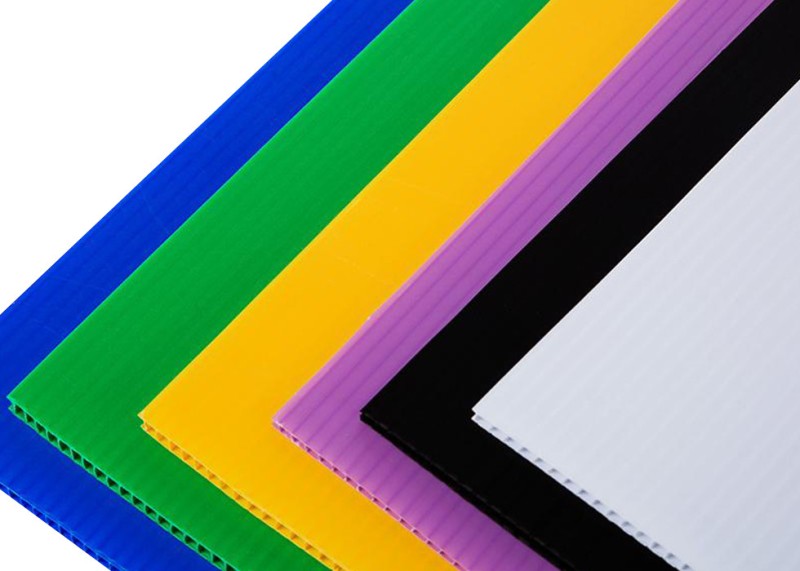Views: 2 Author: Site Editor Publish Time: 2025-01-06 Origin: Site
Coroplast, also known under the tradenames of Corrugated Plastic Sheets, Corrugated Plastic, Corflute, Correx, Corex, CartonPlast, Fluteboard, Impraboard, Corriboard, IntePro, Proplex, Polyflute, Danpla, Twinplast or Corriflute, is one of many brand names that helped popularize the use of corrugated plastic for a number of industrial, commercial, and even household applications. The terms corrugated plastic and Coroplast are often used interchangeably amongst industry experts. This is a classic example of what's known as genericization (when a brand name becomes synonymous with a type of product).
Just like any other commonly used industrial or commercial products, there are some great advantages and unfortunate disadvantages to using corrugated plastic sheets that you should be aware of.
Versatility. Corrugated plastic sheets can be used for a number of commercial, industrial, and household applications. Most commonly, it's used for lawn signs, signs on constructions sites, real estate signs, constructing plastic containers, as well as reusable packaging. In recent years, corrugated plastic has become the go-to material for homemade cages for guinea pigs, domesticated hedgehogs, and rabbits among other small animals. It's also gaining popularity in the remote-control aircraft industry for SPAD model aircrafts.
Lightweight material. Corrugated plastic is extremely lightweight, making it easy to transport, store, lift, assemble, and setup without any complications.
Affordable. Corrugated plastic is extremely cheap to produce and purchase, so even if it does become damaged, replacing it doesn't cost much and you have the ability to order as much of it as your budget allows.
Durable. Designed to withstand a number of environmental conditions, corrugated plastic is extremely durable. Although it's not meant to last forever, it can certainly last a long time before needing to be replaced.
Non-toxic. Made from polypropylene, corrugated plastic is completely non-toxic to humans and animals. Unlike other plastics that contain harmful BPA, corrugated plastic can withstand high and low temperatures without releasing harmful chemicals.
Recyclable. Polypropylene is recyclable and can be upcycled, but it's non-biodegradable.

It's not indestructible. Although it's a fairly durably material, corrugated plastic isn't meant to last forever and will eventually show some signs of wear and tear. Depending on the elements and conditions it's exposed to and for how long, you may notice some fading, bending, and even ripping in the corners. In the best possible conditions, where it’s exposed to a limited amount of weather conditions and human handling, Coroplast can last for a number of years, though. For extra protection, you can laminate your Coroplast sign with a matte finish to extend its lifespan and keep it looking like new longer.
It's not entirely eco-friendly or sustainable. Coroplast is made for polypropylene, which is a non-biodegradable material. It's still recyclable, but not all curbside pickup programs will accept it, so you may need to take it directly to a recycling facility. Luckily, all recycling facilities accept and know how to process polypropylene products. It can also be repurposed or upcycled into other common household materials such as plastic jugs for laundry detergent, soda bottles, shampoo bottles, etc. Recycling your polypropylene household products prevents them from ending up in landfills. It's also important to note that the production process for corrugated plastics can weigh heavily on the environment due to significant carbon waste.